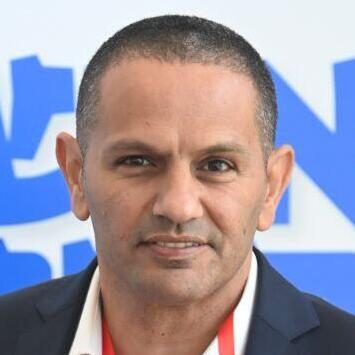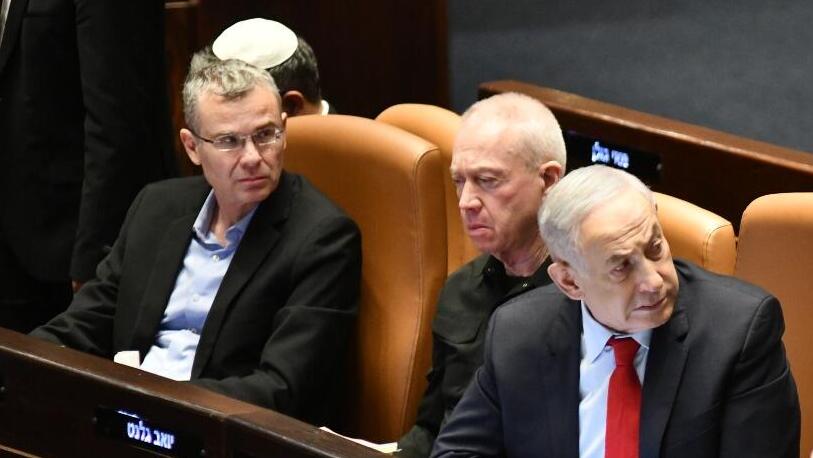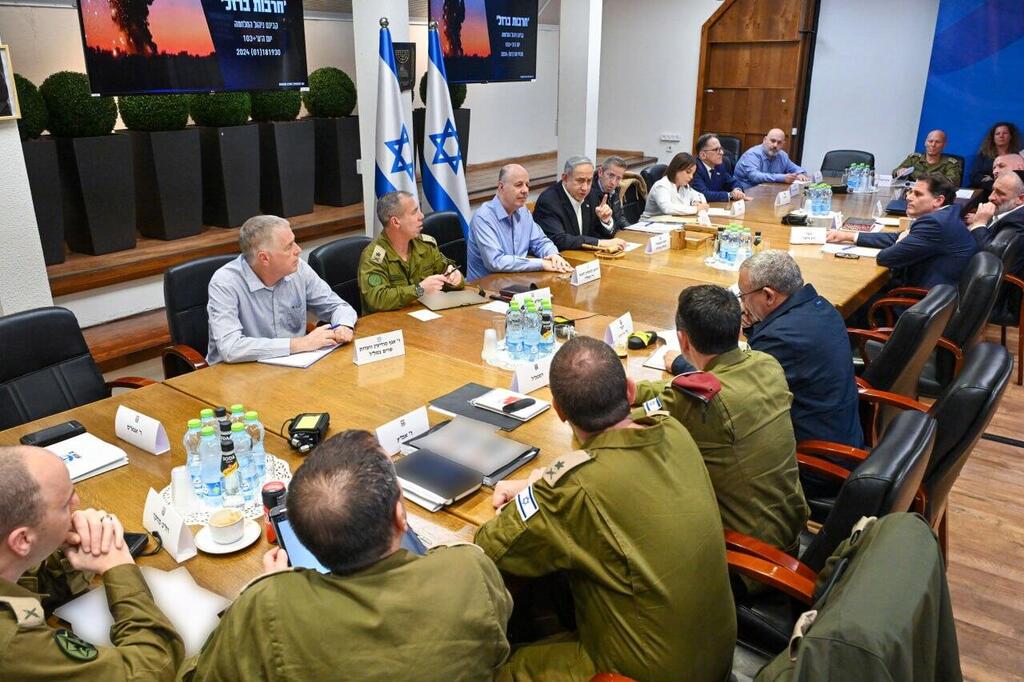There is a line that connects all the fronts where Israel is fighting at the same time: an extreme lack of making difficult decisions. Some of the decisions are unpopular and others will have dramatic consequences.
An entire country has been waiting for a year for the leadership to pull us out of the mud. Instead of making bold and strategic moves, the government is getting used to the normalization of the Iranian vision: to erode Israel politically, economically and socially until it is destroyed. Not a victory and not absolute.
Israel is turning its back on the defense concept that has guided us for more than 75 years: Take the war into enemy territory and keep the war as short as possible. The so-called most hawkish and right-wing government, led by "Mr. Defense", refuses to make decisive decisions and leaves the Iranians with an empty net.
For some months now, the fighting in Gaza is not a war but a battle of varying degrees of intensity. In the absence of a hostage deal, which is unfortunately unlikely soon, it is crucial to decide on how the border will be managed in the wake of the October 7 massacre. The IDF said that replacing Hamas in Gaza will require producing a governing alternative, whether it be the Palestinian Authority, an Israeli military administration, or an international oversight committee.
Until then, Hamas continues to recover and rehabilitate itself throughout Gaza, eroding Israel's operational achievements. Moreover, Hamas exploits humanitarian aid, by either distributing it to gain favor with the people or selling it to refill its coffers. At the same time, Hamas uses this aid to rebuild its forces and strengthen both the military and political branches of the terror organization. Anyone would say that avoiding a decision weakens our chances to defeat Hamas.
Time is running out on the northern front as well. Hundreds of rocket launches a day, tens of thousands of Israeli men and women are still displaced after leaving home in October 2023. Entire cities are abandoned or full of frustrated residents in the safe zones. The military has been telling us for weeks about operational plans that have been completed and are ready for implementation. The political echelon scatters promises about transferring the IDF's operational focal point to the north. The government can't even convene a security cabinet meeting.
The northern residents deserve a military and political leadership that will make decisions as soon as possible. The Israeli public is prepared to endure a massive war for the sake of regional deterrence, but even this will not last long. I doubt that the Israeli public will put up with spending the holidays in bomb shelters. Senior officials in the General Staff say that we must go on the offensive only when there is an opportunity to maximize our efforts.
We also need to take the weather into account. We are approaching winter and the war in the Lebanese mud will make fighting difficult. At this point, the commander of the Northern Command and the commander of the Air Force are pushing for the expansion of the campaign but the Chief of Staff Herzi Halevi prefers to exhaust the efforts for a hostage deal that will bring the conflict in Lebanon to a close.
Defense Minister Yoav Gallant, who called for a campaign in the north as early as October 11, is opposed to the war now. And the prime minister? He constantly declares his intention to change the situation in the north but does not approve the IDF to act. Meanwhile, Hamas leader Yahya Sinwar hears that his dream of uniting the fronts could come true at any moment, so why should he feel pressured to reach a hostage deal?
In the West Bank, it is already impossible not to feel the escalation. No more stabbing attacks, they employ shooting attacks and explosives. Over half a million Israelis live in the West Bank and wonder if an October 7 is waiting for them too.
Although the Central Command and Shin Bet provide a good tactical response, the government still needs to make strategic decisions. Does Israel maintain security coordination with the Palestinian Authority? Does it choose to launch a wide-scale operation? What is the policy toward the PA anyway? If there's one thing we realized on October 7, it's that "conflict management" is a format that works until it doesn't, and then disaster breaks out.
If fighting on the borders is not enough, the Yemeni front also challenges Israel's defense systems, as happened in Sunday's missile launch to the center of the country. After a successful retaliation on the port of Hodeidah, the Houthis have returned to attacking Israel with projectiles. We need another intense and public response. The last thing Israel can afford to do is to normalize missiles from Yemen to Eilat or Tel Aviv.
 Yossi Yehoshua
Yossi YehoshuaAll fronts seem to converge on Iran. To counter the Iranian efforts, Israel must engage in two major areas: thwarting the Iranian nuclear plan and destabilizing its proxies across the region. It is impossible to be satisfied with speeches and charts in the United Nations General Assembly. We need a clear policy and decisive action. What is he waiting for?





